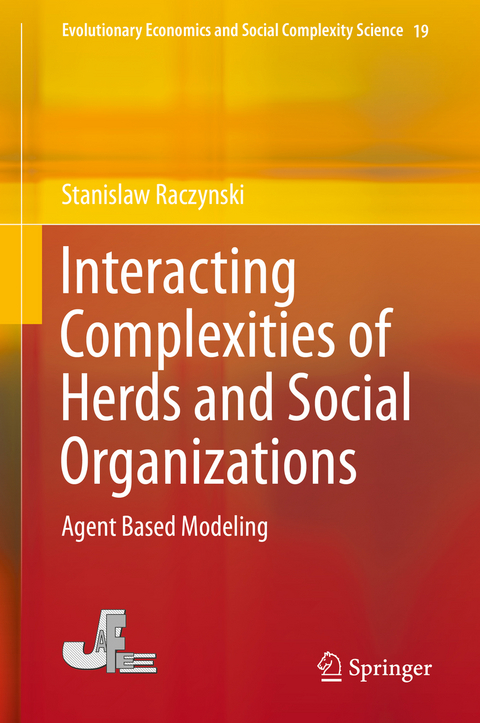
Interacting Complexities of Herds and Social Organizations
Springer Verlag, Singapore
978-981-13-9336-5 (ISBN)
The book provides a broad range of examples and comparisons with the classical dynamics approach, showing readers how to construct models of complex systems. It starts with descriptions ofthe behavior of interacting individuals and also includes important information on the macro-behavior of the whole system.
Stanislaw Raczynski received his master’s degree (1964) from the Electrical Engineering Department of the Academy of Mining and Metallurgy (AGH) in Krakow Poland, his Ph.D. (1969) and his “habilitation” degree (1977) in the field of control theory and optimization methods from the same academy. In 1964 Dr.Raczynski joined the AGH’s Institute for Automatics and Industrial Electronics, and from 1971 to 1972 he was head of the Computer Center at the AGH. Between 1973 and 1976 he worked as a researcher in the International Research Group in Moscow, USSR. In 1976 he became Head of the Systems Analysis Group at the AGH. From 1980 through 1983 he participated in the activities of the European Workshop on Industrial Computer Systems. Between 1983 and 1986 he was a Visiting Professor at the National University of Mexico, and in 1986 he joined the Panamericana University in Mexico City. From 1996 to 2000 and from 2002 to 2004 he was the International Director of The Society for Computer Simulation. He has written two books on computer simulation (Wiley, UK and LIMUSA, Mexico) and has published more than 80 articles and papers in professional journals and conference proceedings
Chapter 1. Agent based models, tools.- Chapter 2. Simulating self-organization and interference between certain hierarchical structures.- Chapter 3. Interactions between terror and anti-terror organizations.- Chapter 4. Organization growth and decay: simulating interactions of hierarchical structures, corruption and gregarious effect.- Chapter 5. The spontaneous rise of the herd instinct: agent based simulation.- Chapter 6. Influence of the gregarious instinct and individuals’ behavior patterns on macro migrations: Simulation experiments.- Chapter 7. Simulating our self-destruction.- Chapter 8. Prey-predator models revisited: uncertainty, herd instinct, fear, limited food, epidemics, evolution and competition.- Chapter 9. Discret event simulation vs continuous system dynamics.
| Erscheinungsdatum | 27.09.2019 |
|---|---|
| Reihe/Serie | Evolutionary Economics and Social Complexity Science ; 19 |
| Zusatzinfo | 79 Illustrations, black and white; XI, 150 p. 79 illus. |
| Verlagsort | Singapore |
| Sprache | englisch |
| Maße | 155 x 235 mm |
| Themenwelt | Mathematik / Informatik ► Informatik ► Theorie / Studium |
| Sozialwissenschaften ► Soziologie ► Empirische Sozialforschung | |
| Wirtschaft ► Betriebswirtschaft / Management ► Planung / Organisation | |
| Wirtschaft ► Betriebswirtschaft / Management ► Unternehmensführung / Management | |
| Schlagworte | Agent-based model • artificial society • Discrete Event Simulation • herd instinct • organization model • Simulation |
| ISBN-10 | 981-13-9336-2 / 9811393362 |
| ISBN-13 | 978-981-13-9336-5 / 9789811393365 |
| Zustand | Neuware |
| Haben Sie eine Frage zum Produkt? |
aus dem Bereich


